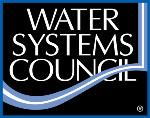
Well Water Testing

Testing your water is important to ensuring your water quality is safe for
you and your family. Remember that you are solely responsible for the
quality of your drinking water, so it is up to you to decide when and how to
test your water.
Recommended Testing
At a minimum, your water should be tested every year for bacteria,
anything of local concern or any contaminants that you are monitoring
from previous test results.
Testing more than once a year may be warranted in special situations:
- Someone in your household is pregnant or nursing
- There are unexplained illnesses in the family
- Your neighbors find a dangerous contaminant in their water
- You note a change in water taste, odor, color or clarity
- There is a spill of chemicals or fuels into or near your well
If you have a situation that is mentioned above, follow comprehensive
testing recommendations below or call the wellcare® Hotline at 888-395-
1033 for assistance on what to test for.
Comprehensive Testing
If you have noticed a change in your water or you have not tested in several years, do a comprehensive test to find out if there are any contaminants of concern. Even if there is no contaminant found, this will give you a baseline
that you can check against in the future.
Water Samples
You will need to collect water samples for the  laboratory you choose to test your water. The laboratory usually provides specific sampling instructions and clean bottles in which to collect the water sample. Do not rinse lab containers or fill them to overflowing. Check to see if the sample must be refrigerated or treated with special chemicals.
laboratory you choose to test your water. The laboratory usually provides specific sampling instructions and clean bottles in which to collect the water sample. Do not rinse lab containers or fill them to overflowing. Check to see if the sample must be refrigerated or treated with special chemicals.
You may need to take a sample from the tap with the first flush of water in the morning or after the tap has been allowed to run for a period of time. If you suspect a problem somewhere in your home plumbing, you may need to take samples from several points: before and after water enters the hot water tank, for example, or at the inlet and outlet of a filtering device.
Again, carefully follow the instructions provided by the laboratory. We have provided an example at right for taking samples. Sampling is the most important part of testing. A carelessly collected sample can give
you inaccurate results.
Finding a Testing Lab
We have provided water testing resources for each U.S. state and Canadian province to assist well owners in those areas obtain lists of certified water testing laboratories. These lists can be found by using our interactive map.
 Water Systems Council
Water Systems Council